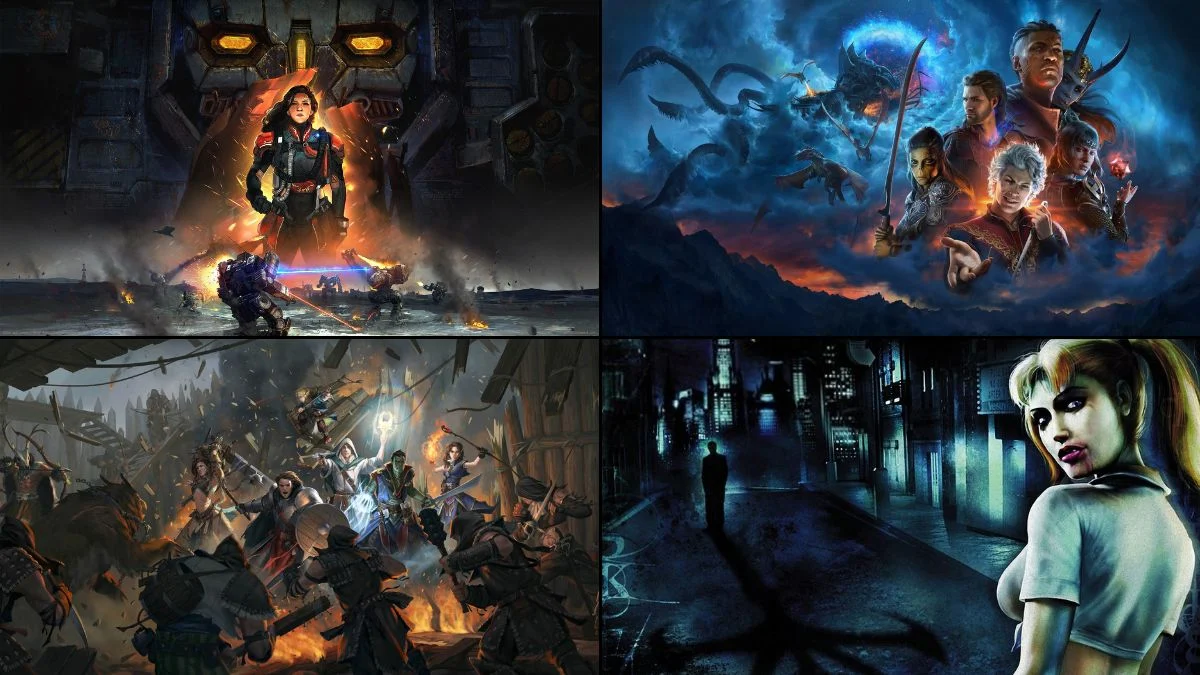
Tabletop games have been a major influence on countless video games, with many borrowing rules, worlds, and even complete adventures. These video game adaptations often turn the dice rolls, movement tracking, and turn order of tabletop games into computer code, while also adding helpful features like character creation, saved games, and automatic calculations. This allows players to experience familiar game systems and settings with the benefits of visuals, automation, and the ability to play online.
This list highlights video games officially based on popular tabletop role-playing games, board games, and miniature wargames. For each game, we’ve included information about who made it, when it was released, what platforms it’s on, and which tabletop game inspired it. This helps you find digital versions that match your favorite rules or settings. You’ll also find details about the game’s features and how they compare to playing the original game with friends.
Baldur’s Gate 3
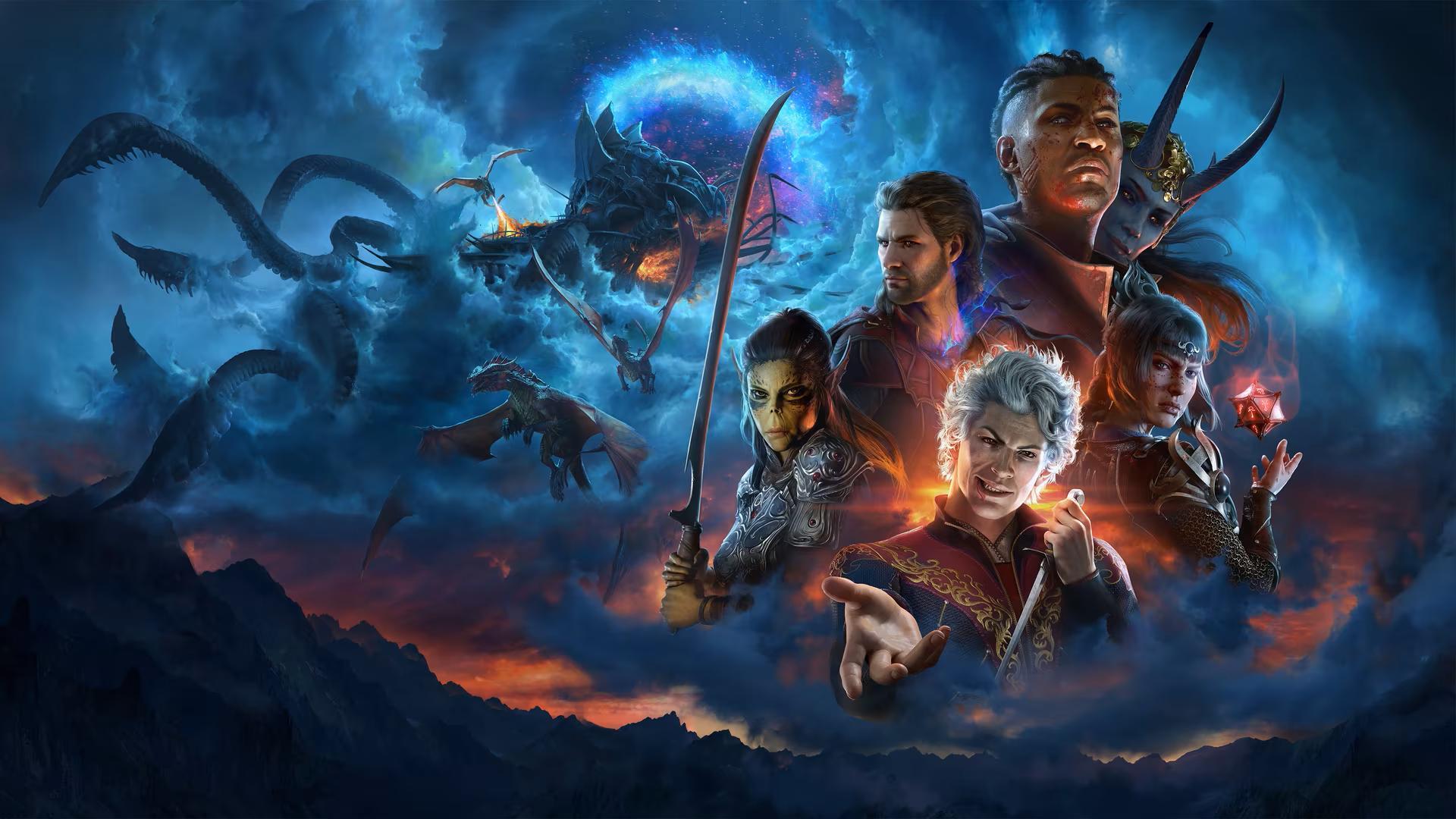
Larian Studios launched this role-playing game on PC, PlayStation 5, and Xbox Series after being available in Early Access since 2020. The full game came out in 2023. It uses the rules of Dungeons & Dragons fifth edition, including skill checks, bonuses, and the concepts of advantage and disadvantage. Combat follows a turn order based on initiative, and players can rest either for a long or short period. The game can be played solo or with up to four players online or locally, and features several pre-made characters connected to the world of Faerûn and its different groups.
The game features in-depth systems for conversations, engaging combat with elements like height advantages and elemental effects, and a skill-based system for using tools and spells, closely mirroring the rules of tabletop role-playing. Players can create characters from all the core classes and many subclasses, progressing through levels and choosing special abilities. The game also offers options to customize the difficulty and allow for non-lethal combat, similar to how a game master would rule in a tabletop game.
Baldur’s Gate II Shadows of Amn
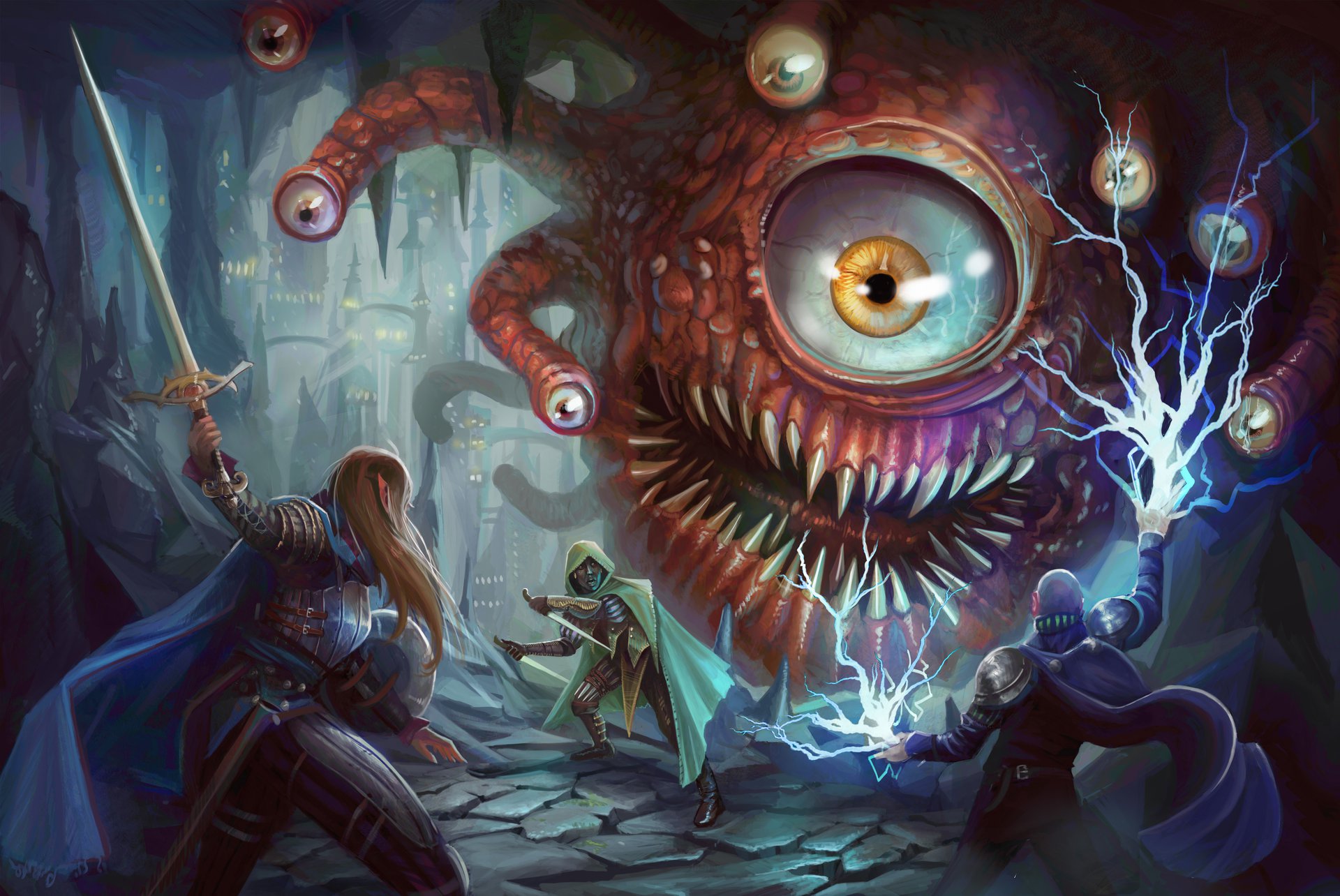
Released for PC in 2000, and later updated for modern platforms, this game is an isometric role-playing experience from BioWare. It uses the rules of Advanced Dungeons & Dragons Second Edition, featuring real-time combat with a pause function. The game calculates attacks, saving throws, and spell effects using the powerful Infinity Engine. The expansion, Throne of Bhaal, adds even more power with higher level abilities, extends the level cap, and continues the story of the Bhaalspawn within the Forgotten Realms universe.
The game lets you manage a party of six companions, each with their own personality and skills inspired by the classic Advanced Dungeons & Dragons second edition. Magic spells work like the original game, requiring you to memorize them as a priest or wizard. Identifying items and using skills relies on knowledge checks and proficiency, just like a tabletop character sheet. Later versions of the game offer widescreen display, more companions, and the ability to use modifications created for different platforms.
Planescape Torment
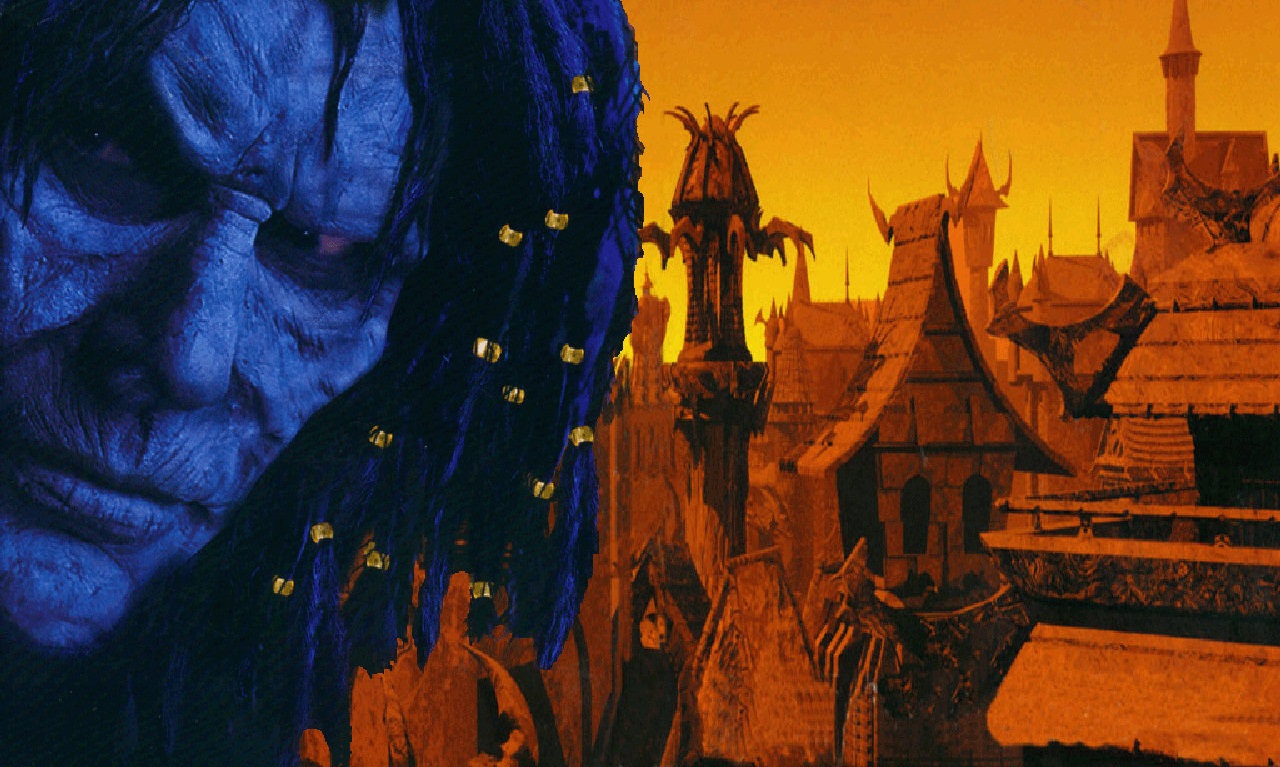
Released in 1999 for PC (and later updated for other systems), this role-playing game from Black Isle Studios is set in the Planescape universe of Advanced Dungeons & Dragons. It’s built using the Infinity Engine and focuses heavily on conversation and dialogue skills – your choices and how you say things matter more than fighting. Instead of just gaining experience from battles, you’ll progress by what you say and how you interact with others. The main character, known as the Nameless One, develops by changing classes, similar to multiclassing, with the results of those changes depending on their stats.
The game keeps track of character relationships with different groups, their backgrounds, and allies from various realms, including groups like the Dustmen and the Transcendent Order. Spells are powered by established game systems, and the game’s layout mimics a traditional tabletop character sheet, showing character details, inventory, and quick access to items. This updated version improves how the game looks on different screens, lets players customize controls, and works on more platforms.
Icewind Dale Enhanced Edition
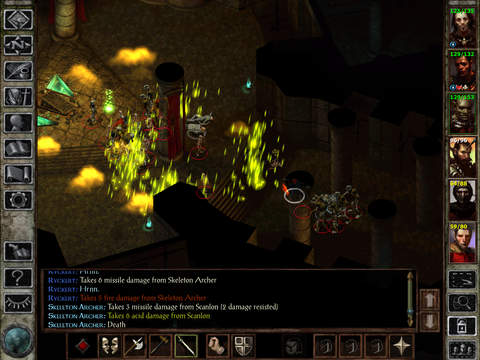
This game, first launched in 2000 and updated by Beamdog, brings the rules of Advanced Dungeons & Dragons Second Edition to life using the powerful Infinity Engine. Players build a party and embark on tactical adventures in the Spine of the World, battling enemies in a real-time-with-pause system that carefully calculates armor, saving throws, and damage. The enhanced edition includes content from the game’s sequel, plus new character options like class kits and spells, and various improvements for a better player experience.
Players start with a complete party of six characters and can customize their skills in combat, healing, and divine magic, following the game’s rules. The game’s items, magic, and how you recover after battles are designed to feel like a traditional tabletop role-playing game, including creating scrolls, clerics preparing spells, and unexpected events. For a greater challenge, you can enable ‘Heart of Fury’ mode, which significantly increases the difficulty as you level up.
Neverwinter Nights Enhanced Edition
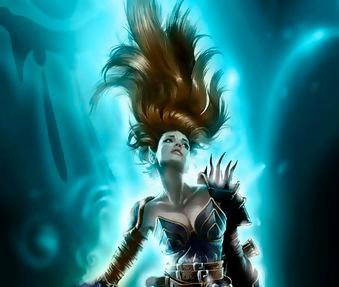
Originally launched in 2002 by BioWare and later updated for current systems by Beamdog, this game is built around the rules of Dungeons & Dragons 3rd Edition. It uses the Aurora Engine and features both a solo campaign and a robust set of tools for creating custom content. A built-in Dungeon Master client allows for live, moderated game sessions where the DM can control creatures and enforce the rules in real-time.
Character development involves choosing abilities, skills, and how they react in combat, all tracked on a grid-based map with visibility rules. Players can enjoy ongoing online worlds with customized content, or experience official, story-driven adventures. This updated version features better graphics, improved online play, and support for user-created content through Steam Workshop.
Pathfinder Wrath of the Righteous
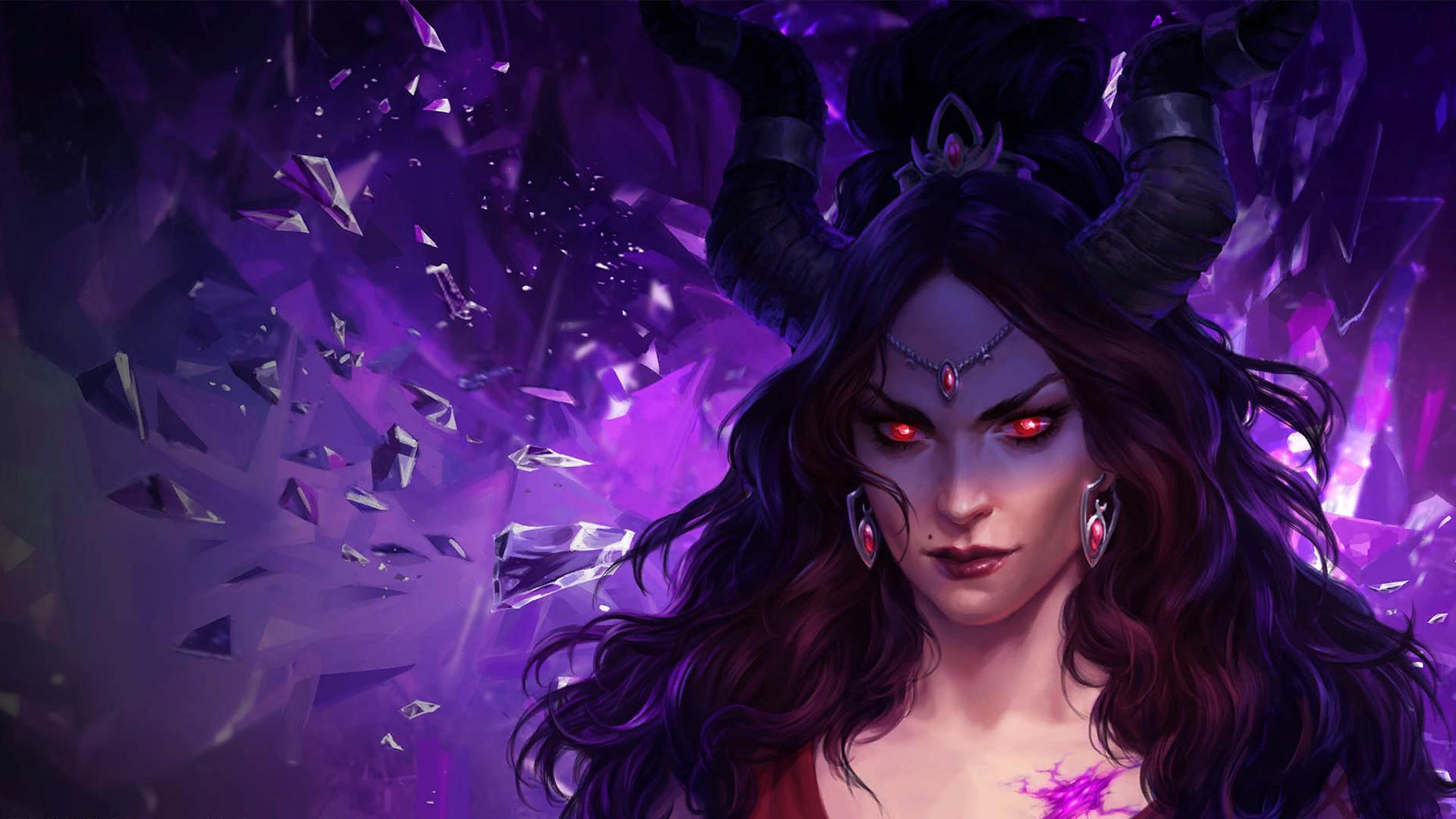
Owlcat Games launched this role-playing game for computers in 2021, and it was later released on game consoles. The game uses the rules from the first edition of Pathfinder and features both turn-based and real-time combat. Players can choose from powerful ‘mythic paths’ and customize their characters with a wide variety of skills and spells. The story is set during the Worldwound crusades, and your choices, based on your character’s alignment, will unlock unique abilities and transform your character.
The game features both large-scale army management, including tactical battles and an economic system for crusades, and detailed party-based combat with options like attacks of opportunity, flanking, and special maneuvers. When creating your character, you can choose from different archetypes, select a deity, gain bonuses based on your class, and succeed in conversations based on your skills and abilities. Updates after release have added controller support, more mythical paths to explore, and adjustable difficulty levels.
Pathfinder Kingmaker
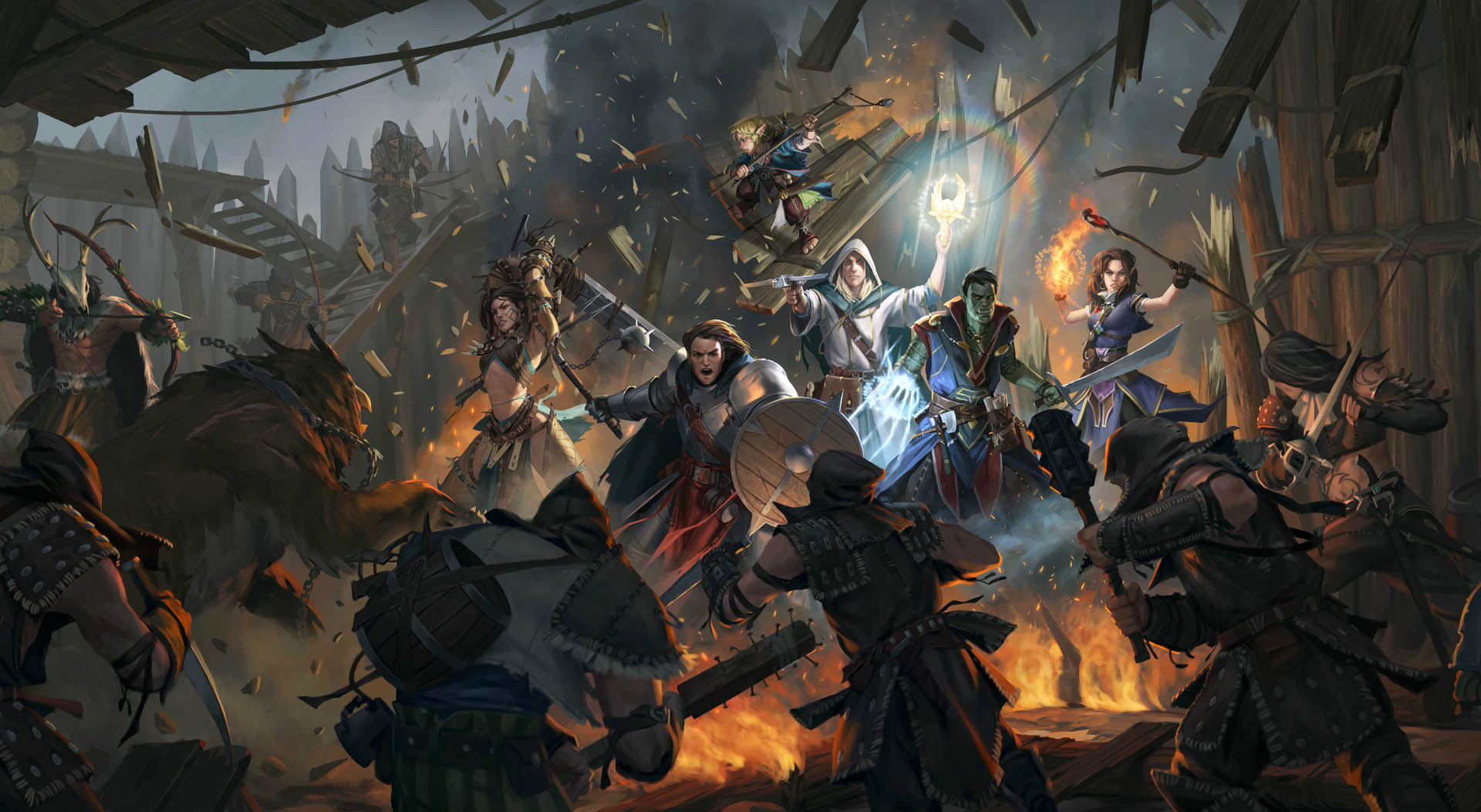
This game, released by Owlcat in 2018 for PC and later consoles, brings the rules of the Pathfinder first edition to life. It’s based on the Kingmaker adventure, and features a detailed system for managing your kingdom. Players create parties with highly customizable characters, and the game realistically simulates tabletop RPG resource management – things like resting, hunting for supplies, and managing how much your party can carry.
This game simulates a kingdom by letting you manage advisors, respond to events, claim regions, and deal with unrest, all of which impact your long-term campaign. Battles can be played in real-time with pausing, or in a turn-based mode, and feature elements like saving throws, conditions, and buffs that follow the timing rules of Pathfinder. Additional content is available through expansions, adding new character classes, companions, and a more detailed ending to the main story.
Shadowrun Dragonfall Director’s Cut
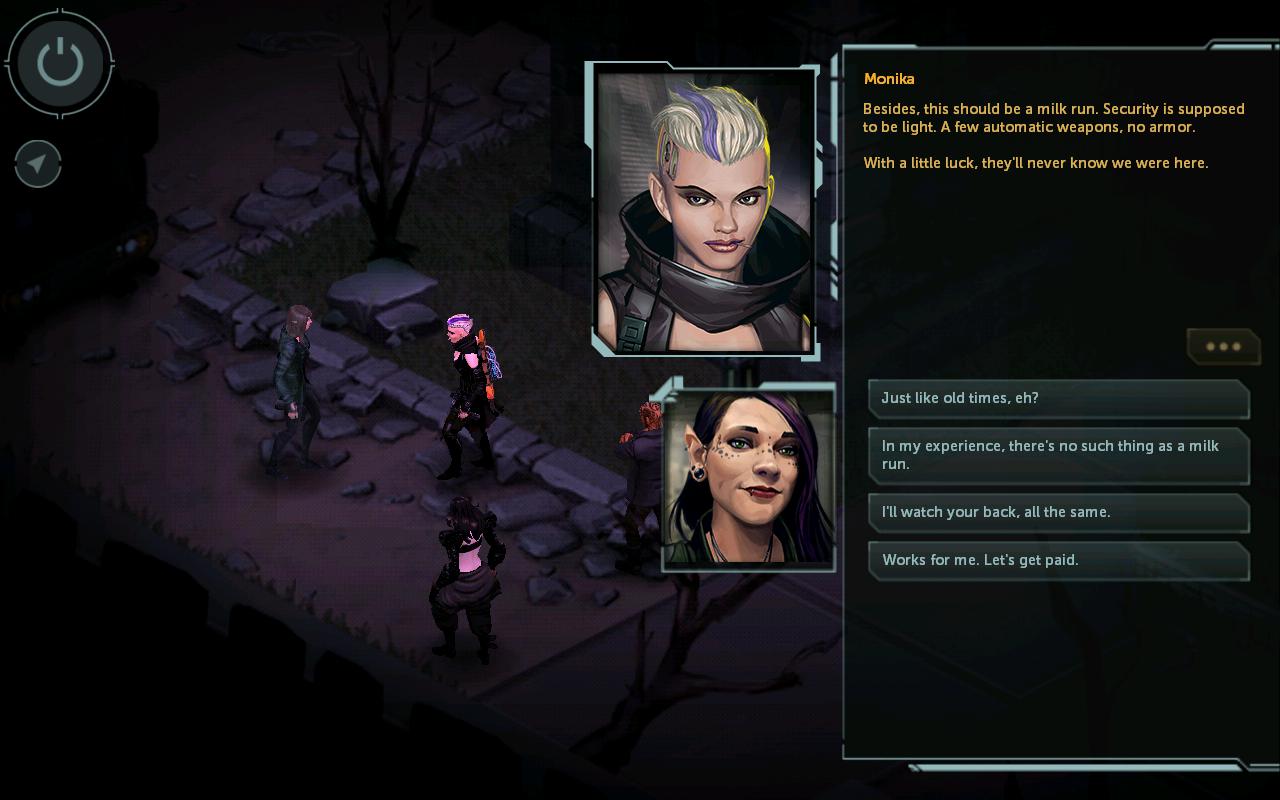
In 2014, Harebrained Schemes launched a standalone version of this game on PC, later bringing it to other platforms. It transforms the Shadowrun tabletop role-playing game into a turn-based tactical experience featuring action points, cover mechanics, and dialogue driven by character skills. The game’s Berlin setting incorporates elements like hacking (matrix decking), summoning spirits, and using cyberware, all inspired by the original Shadowrun sourcebooks.
Players improve their characters by spending karma to gain better attributes, skills, and abilities. Combat involves strategic choices based on a weapon’s recoil and spread. The game also features a virtual reality layer called the Matrix, offering a separate tactical experience with security systems and helpful programs. This enhanced edition, the Director’s Cut, includes new missions, a redesigned user interface, and more ways to customize your character’s talents.
Battletech
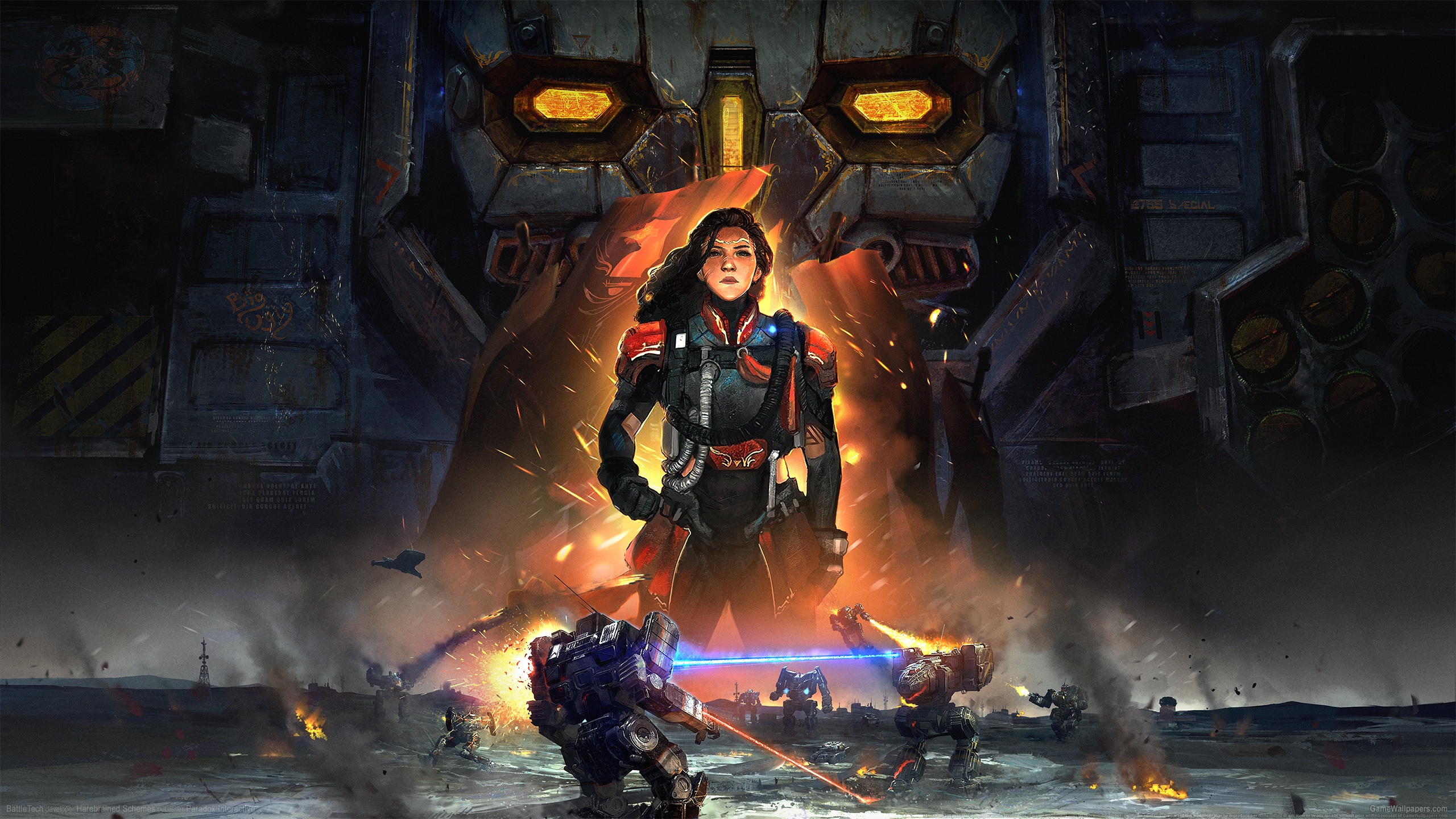
In 2018, Harebrained Schemes and Paradox Interactive launched this tactical game for PC. It brings the complex rules of the BattleTech tabletop game to life, letting players control squads of giant robots in strategic battles. Players need to manage heat, stay stable, dodge attacks, and target specific enemy parts. Between battles, you’ll manage your mercenary company’s finances, take on salvage missions, and customize your robots in the hangar.
Battles are determined by where hits land, factoring in a unit’s weight, visibility, and the surrounding environment, all of which impact movement and accuracy. You can customize your mechs with equipment similar to the tabletop game, including weapon slots, ammo storage, and cooling systems. A pilot’s skills affect how well they dodge attacks and land precise shots. After launch, the game will be expanded with a career mode, special missions called Flashpoints, and even harder difficulty settings.
Vampire The Masquerade Bloodlines
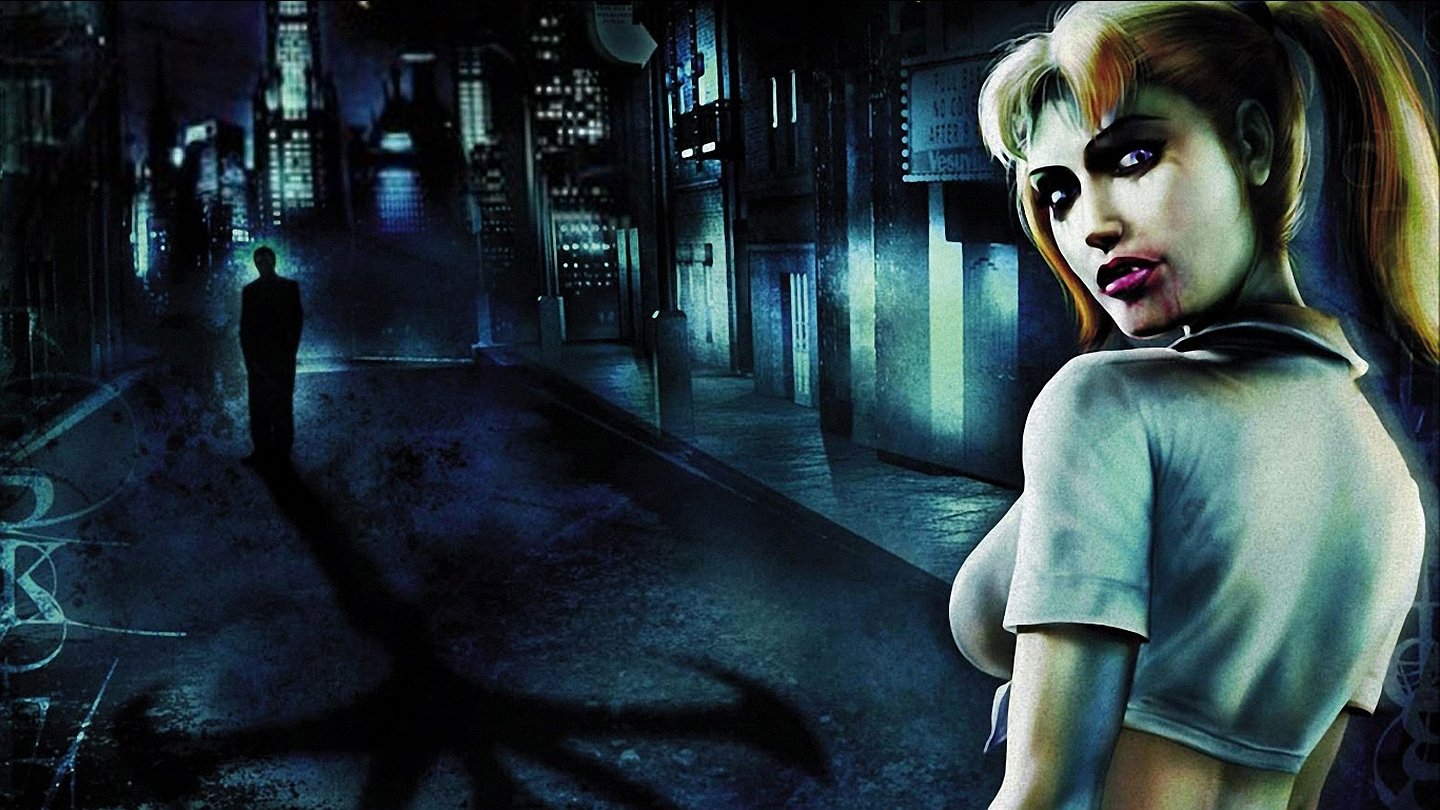
Released for PC in 2004, this role-playing game is set in the World of Darkness universe, originally a tabletop game. Players choose a clan and manage things like their powers, humanity, and how well they hide their true nature from the human world. The game’s conversations and how quests end depend on the player’s chosen clan and their unique abilities and social strengths.
Character sheets detail a character’s core strengths, skills, and special talents, mirroring the original game’s design – players improve these by earning and spending experience. Game mechanics like sneaking, picking locks, and fighting are all connected to these character stats. Actions like neglecting your character’s needs or breaking social rules impact how different groups react. Fan-made updates fix technical problems and restore content that was previously unavailable, making the game more enjoyable for today’s players.
Call of Cthulhu
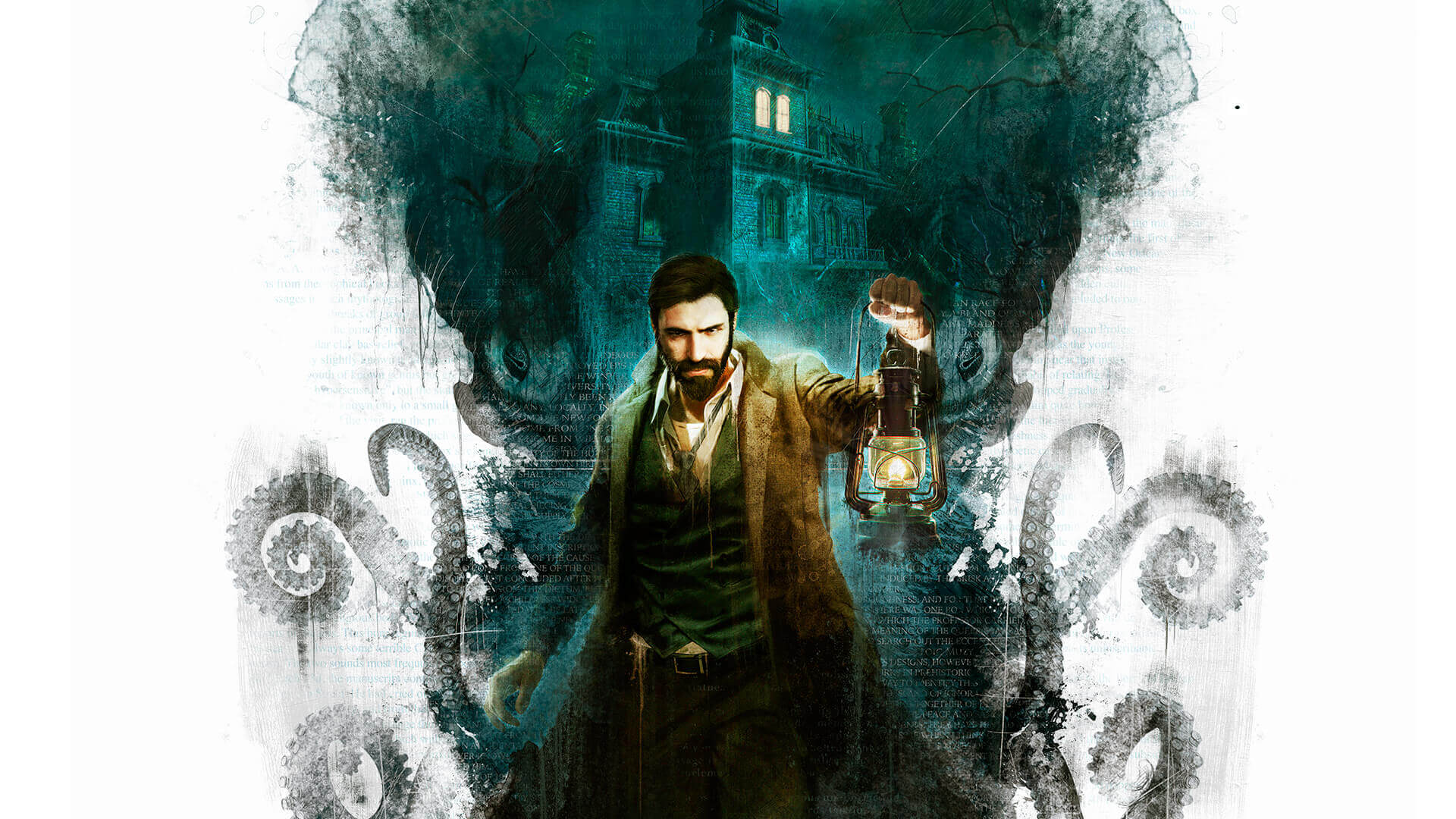
I picked up this RPG from Cyanide back in 2018, and it’s based on the Chaosium tabletop game. It’s really focused on investigation and keeping your character’s sanity while you explore this creepy island called Darkwater. You build up skills like talking your way out of things, finding hidden clues, understanding people, and even basic medicine. Basically, everything comes down to how well you roll the dice and if your skill levels are high enough to succeed.
This game focuses on investigation rather than fighting, just like the original tabletop game. It does this by changing how you perceive things and how the story ends based on what you discover and how exposed you are to unsettling events. Exploring environments lets you piece together what happened, challenging your skills, while sneaking around forces you to survive against overwhelming odds. The choices you make and the clues you find open up new conversation options, similar to how a game master would guide the story in the tabletop version.
Gloomhaven
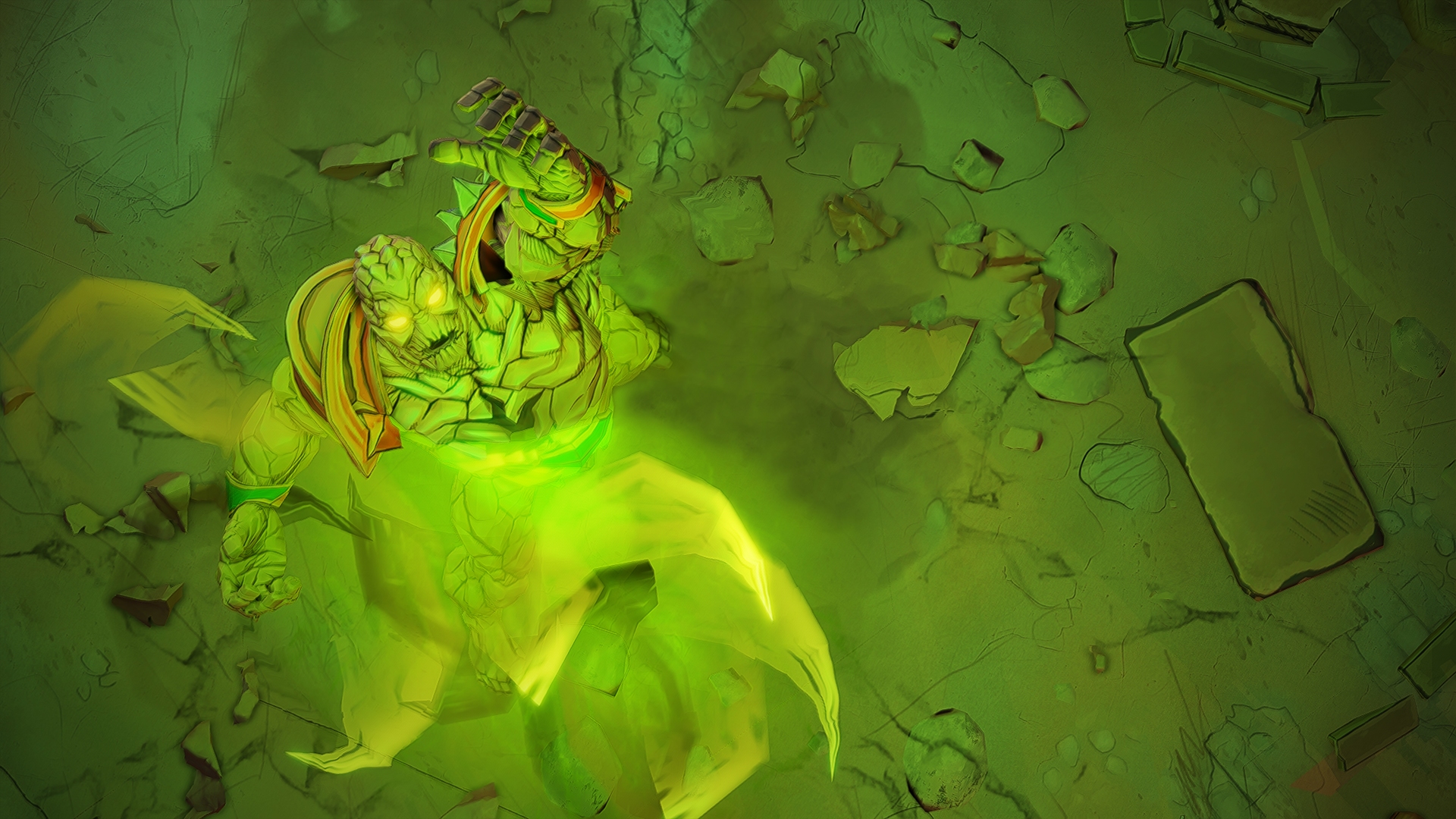
Flaming Fowl Studios and Asmodee Digital have brought the popular board game to PC (and later consoles). The digital version keeps the original’s card-based gameplay but adds a complete campaign with evolving storylines, character development, and lasting consequences. You can play with up to four friends online, and each turn involves carefully managing your character’s energy and actions using a hand of cards.
The digital game faithfully recreates the board game experience with hex maps, elemental powers, and monster behavior cards. It also improves on the original with helpful features like deck previews, an undo button for accidental clicks, and automatic enemy targeting. Players can further expand the game with a guildmaster mode and downloadable content featuring new characters and quests.
Talisman Digital Edition
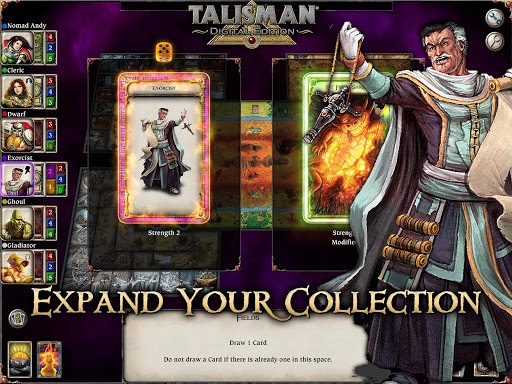
Nomad Games has released a digital version of the beloved board game for both PC and mobile devices. Players explore a world by rolling dice, choosing character alignments, and embarking on a quest to claim the Crown of Command. The game supports online and local multiplayer for up to six players, and includes customizable house rules to adjust the game’s speed and difficulty.
This game expands on the original with new content like city, dungeon, and woodland boards, plus spells, followers, and different ways the game can end. It simplifies gameplay by handling battles and item management automatically, but still lets you use fate tokens to reroll dice and utilize each character’s special abilities. You can play with friends on different devices, and AI opponents are available if you don’t have enough players.
Scythe Digital Edition
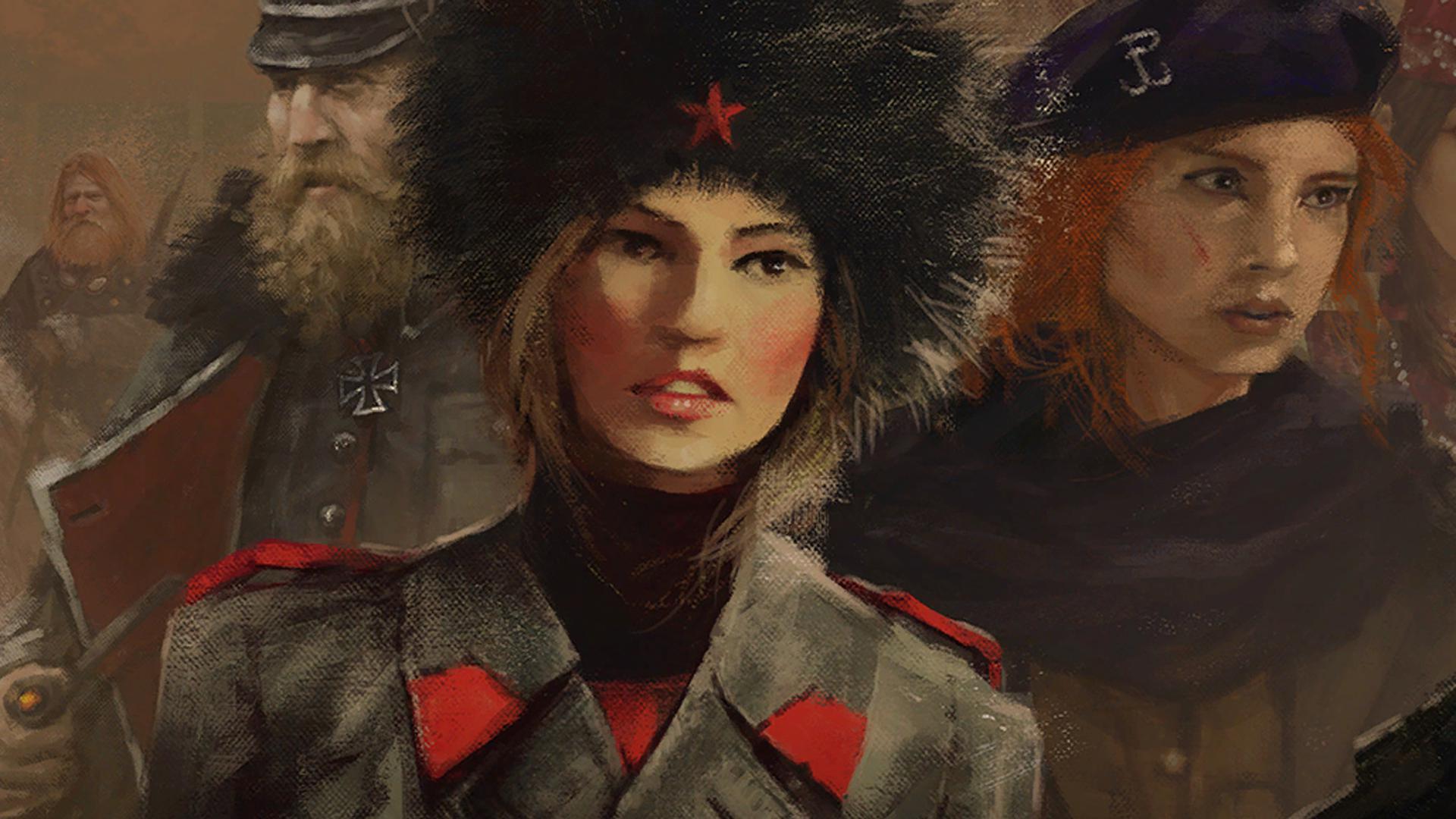
The Knights of Unity have launched a digital version of their game for PC and mobile devices. It recreates the strategic gameplay of the board game – building up your resources and controlling territory – set on a map of Europe. Each faction plays differently, featuring unique mechs, and the game’s design ensures you can’t repeat actions, mirroring the experience of playing the tabletop version.
The digital game lets you play by yourself against the computer, with others online, or through the official story campaign. You can also add expansions like Wind Gambit and Invaders from Afar, which introduce airships, new ways to resolve challenges, and extra playable groups. Helpful features like a turn history and an ‘undo’ button (for hidden information) make it easier to learn and prevent errors during gameplay.
Blood Bowl 2
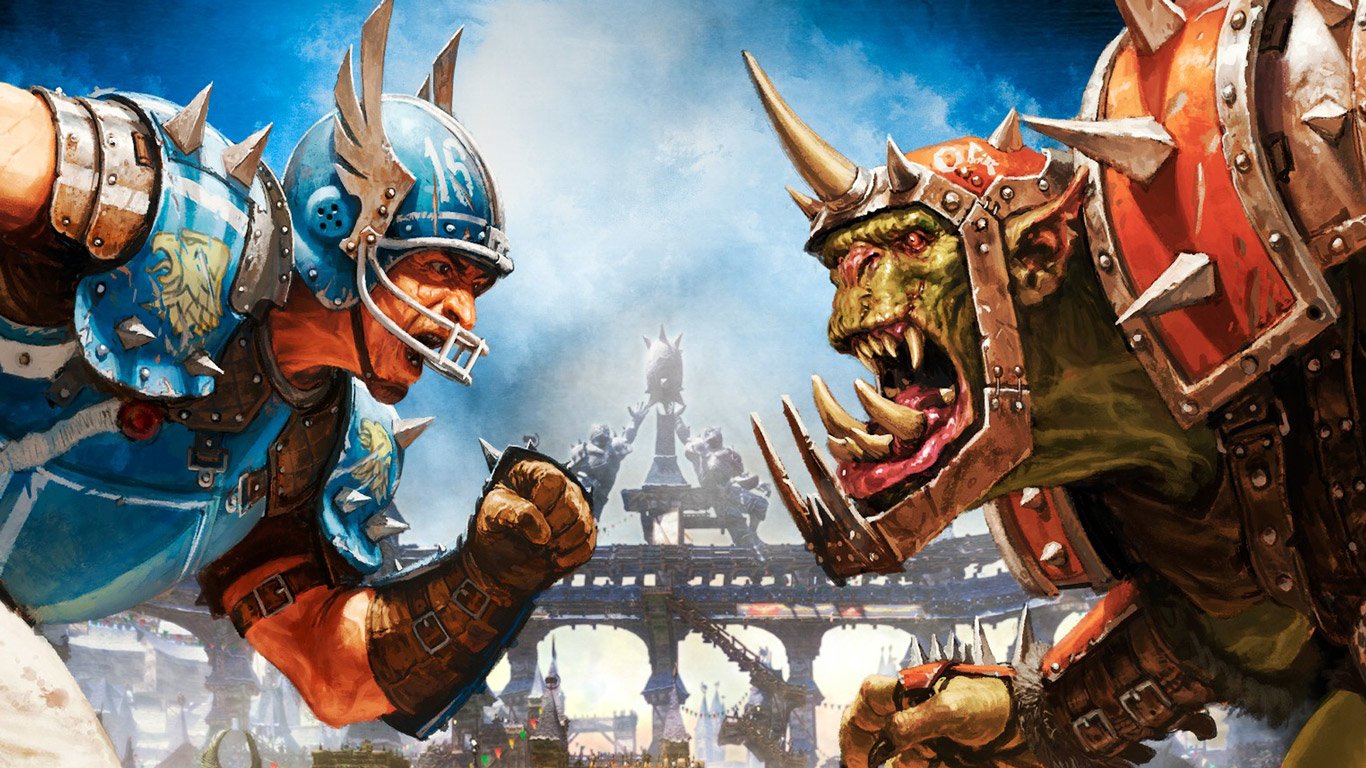
In 2015, Cyanide released a sports tactics game for computers and consoles based on Games Workshop’s fantasy football board game. The game features turn-based play, using dice to determine blocks, armor effectiveness, and injuries, and includes league management. Players can build teams from various Warhammer fantasy races, with skills like blocking, dodging, and guarding tied to specific player positions.
The game features seasons with rewards and player development, including hiring star players and managing team finances. The system handles game timing, start events, and changes in possession, while custom leagues let league managers adjust game settings. Downloadable content adds new teams, playbooks, and player abilities.
Space Hulk Deathwing
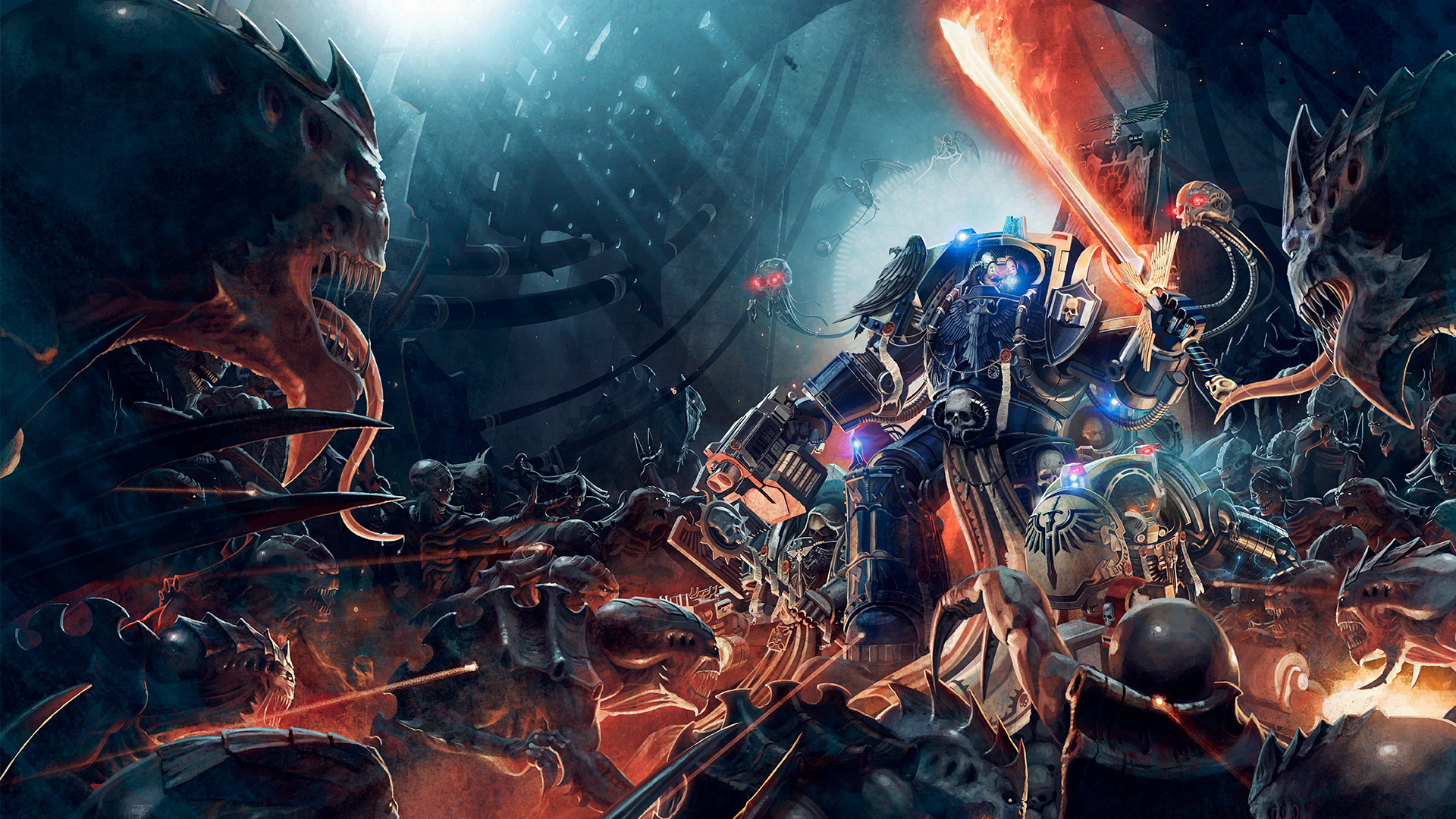
Released in 2016 for computers and consoles, this first-person shooter from Streum On Studio and Focus Home Interactive is based on the popular Space Hulk board game. Set in the Warhammer 40,000 universe, the game puts you in the role of Space Marines boarding and clearing out abandoned ships. Players follow a squad from the Deathwing chapter, and can experience the campaign either solo or with friends in cooperative play.
The game focuses on close-quarters combat, using powerful weapons and directing your AI teammates. Enemies act like a relentless, growing horde, and missions involve securing areas, finding lost artifacts, and hacking systems. As you play, you’ll unlock different character classes, better equipment, and psychic abilities, all connected to the game’s story.
Warhammer Vermintide 2
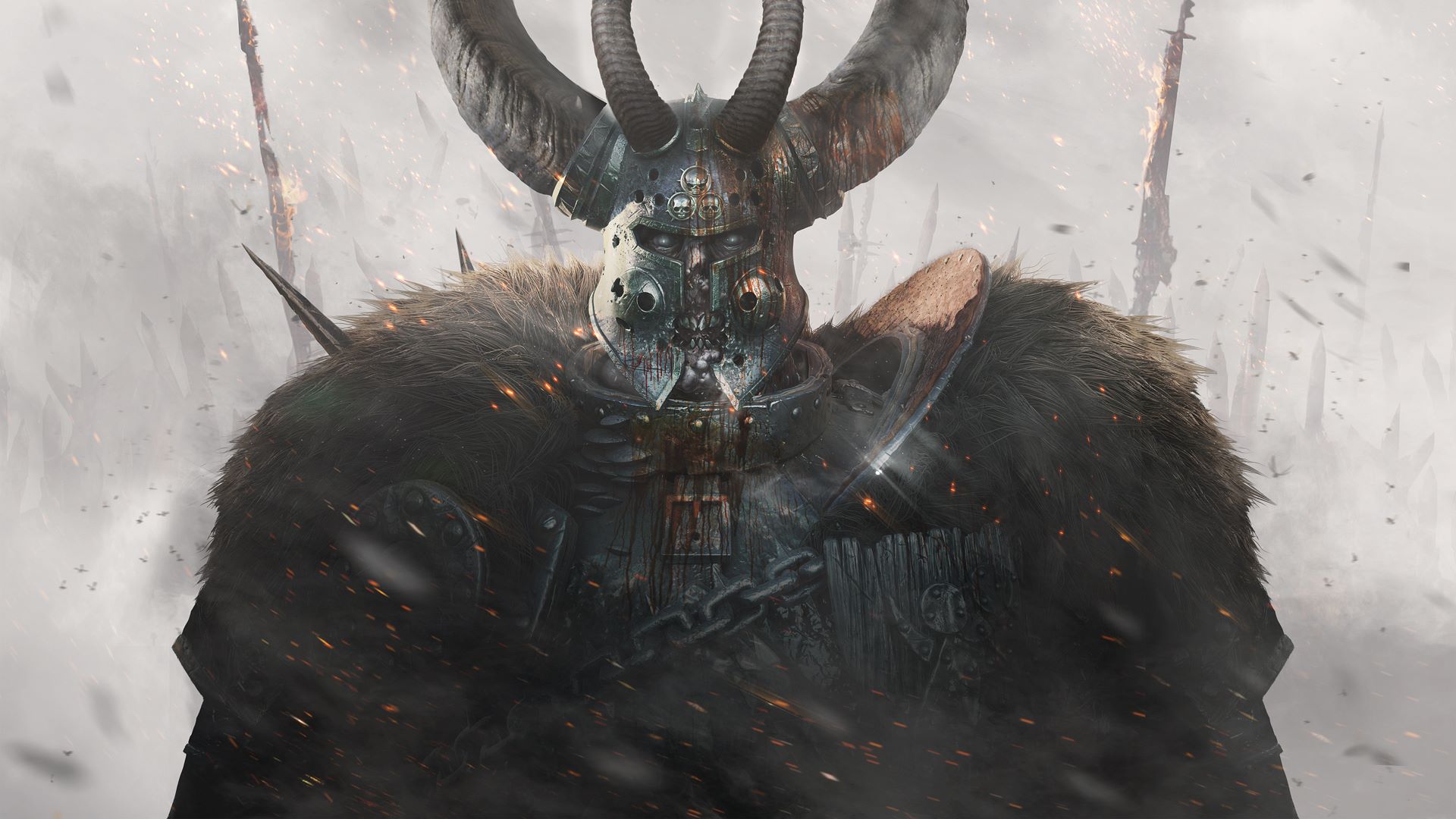
Fatshark launched this action-packed cooperative game in 2018 for both computers and consoles. Set during a dark period in the Warhammer fantasy world, players team up to complete missions using first-person melee and ranged attacks. Up to four players can join forces, each customizing their character with unique skills and earning better gear as they progress.
You’ll face enemies like Skaven and forces of Chaos, each with unique types that create challenging situations, much like those found in tabletop games. You can improve your gear by crafting, breaking down old items, and rerolling crafting attempts. The game’s difficulty changes how many enemies you encounter and how much damage they deal. Plus, seasonal events and adventure maps offer new goals and cosmetic items to earn.
Total War Warhammer III
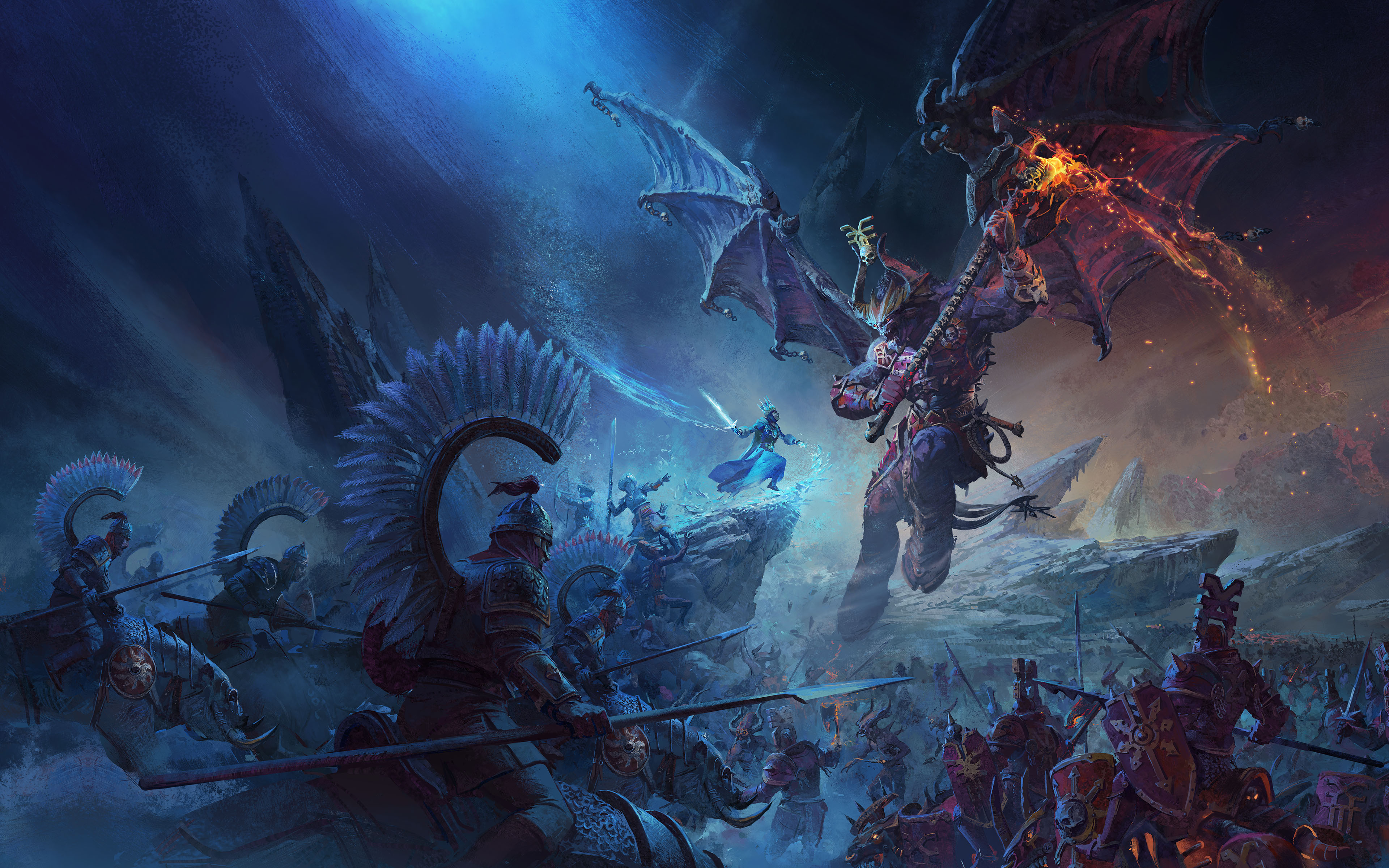
As a huge fan, I was so excited when Creative Assembly released this massive strategy game for PC in 2022! It’s based on the Warhammer fantasy world, and they did an amazing job of bringing all the different armies, magic, and units from the tabletop game into the Total War style of campaign and battles. But the best part? The Immortal Empires mode! It’s this incredible grand campaign that combines everything from all the different games, letting you play as tons of different factions and legendary leaders. It’s seriously a dream come true for any Warhammer or Total War enthusiast.
The game’s battles use a magic system with limited reserves, special army abilities, and unique stances for flying or monstrous units – all inspired by the tabletop game. The campaign map includes special rituals, corruption effects, unit losses over time, and diplomatic options that vary depending on the faction you choose. The game is also regularly updated with improvements, new leaders, and elite units.
Warhammer 40000 Mechanicus
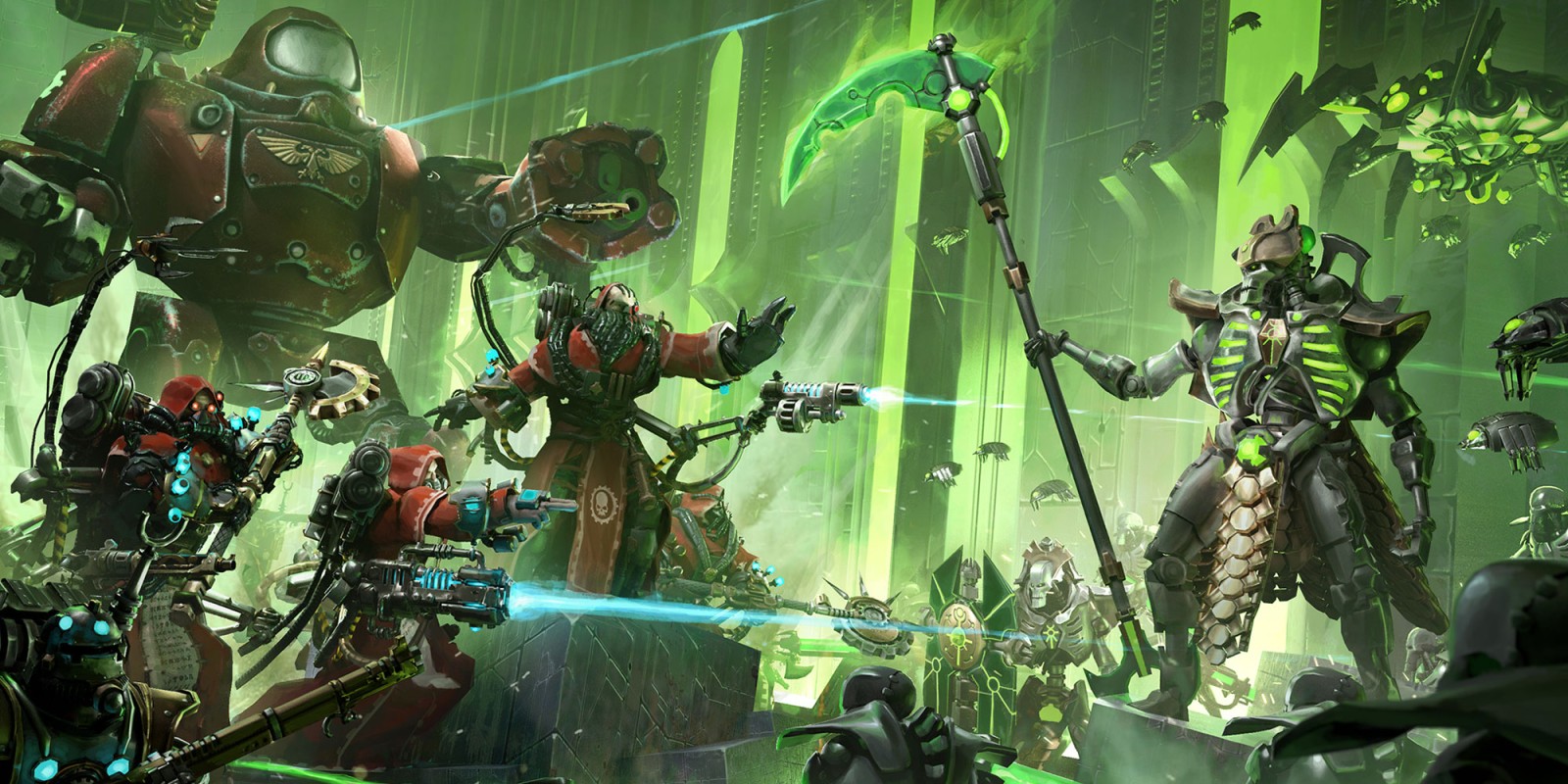
Bulwark Studios launched this strategy game in 2018 for computers and gaming consoles. Set in the Warhammer 40,000 universe, it centers around the Adeptus Mechanicus and missions involving Necron tombs. Battles are turn-based, with actions powered by cognition points. Players can also use upgrades and special abilities—called canticles—to boost their entire team.
Players can quickly switch weapons and use helpful servo-skulls thanks to equipment slots, and random events offer challenging choices with potential rewards. Improving your tech priest and gathering resources unlocks new abilities, while timed missions create a sense of urgency as you explore ancient Necron structures. The game features multiple endings and unlockable units, encouraging players to experiment with different squad combinations.
Lords of Waterdeep
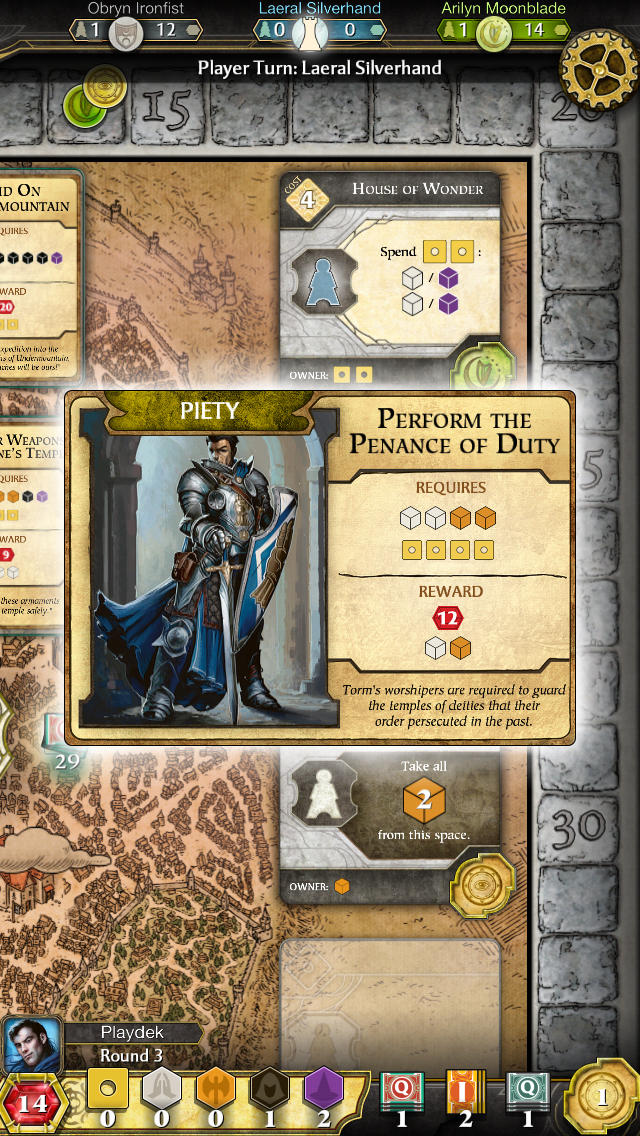
This game, originally available on iOS and then PC, brings the Dungeons & Dragons worker placement board game to life digitally. You can play with others online at your own pace (asynchronous multiplayer) or enjoy a solo experience. Players strategically place their agents to gather adventurers and finish quests, earning points to win. A secret scoring system adds an extra layer of challenge.
The Scoundrels of Skullport expansion introduces elements of corruption and new buildings. The game keeps track of these with tokens and helpful tooltips. It also features pass-and-play timers, an undo function for valid moves, and a detailed record of every placement and completed quest. New players can benefit from tutorial prompts and easy access to the game’s rules and scoring information.
Gloomhaven Mercenaries Edition on consoles
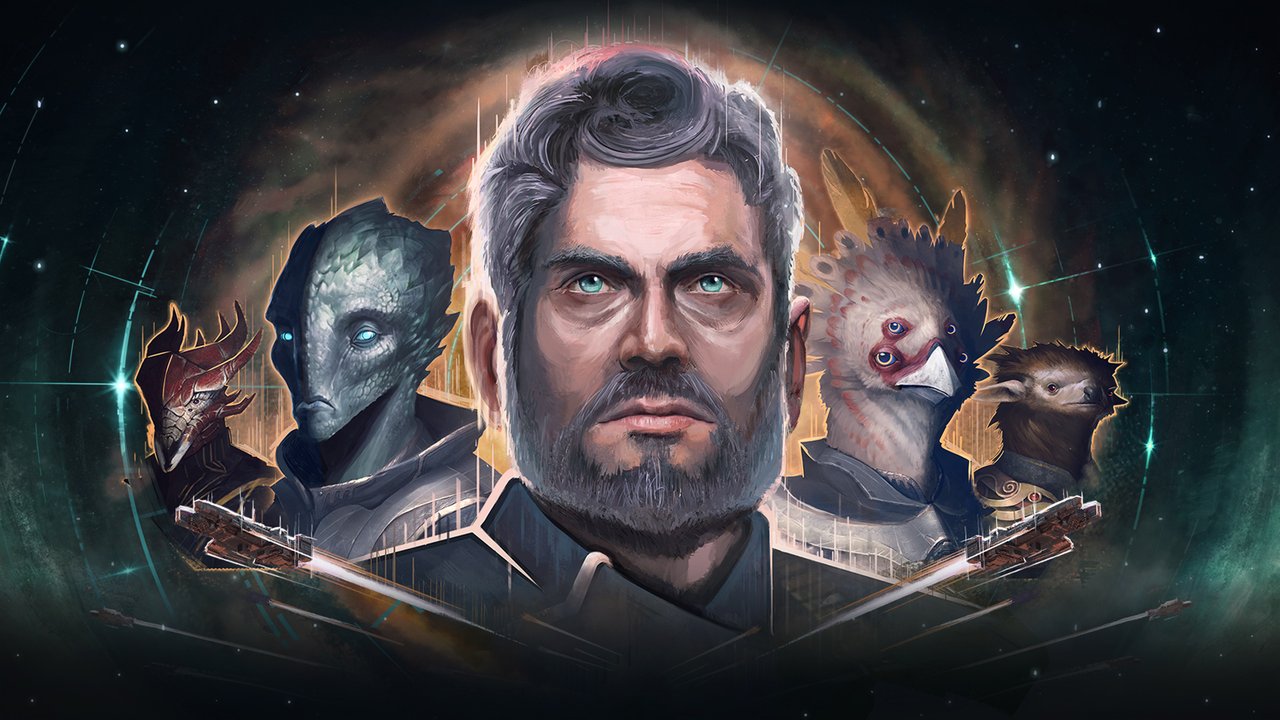
Saber Interactive and Flaming Fowl Studios have brought the digital campaign to consoles, tailoring the interface for controller use. The game keeps the core tabletop features players love, like the card-based stamina system, turn order, and elemental powers. Managing your hand of cards and choosing targets is now done easily with radial menus and quick selections on your controller.
This package gives you the complete campaign experience, including everything added after launch, like mercenary options. The game keeps track of your progress – including character retirements and town development – and automatically adjusts difficulty based on your party’s level, just like in a tabletop game. You can also play online with friends, and your progress carries over between sessions, even if the host changes.
Warhammer Quest Silver Tower
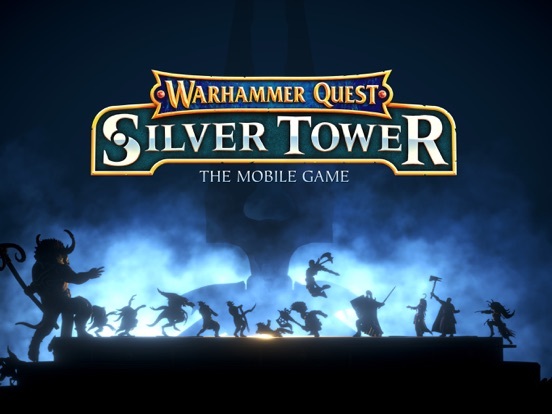
Perchang has launched a mobile game set in the Warhammer Age of Sigmar universe. It’s a tactical dungeon crawler inspired by the Warhammer Quest board game, featuring tile-based movement, cooldown-based skills, and lots of gear to collect. Players build teams of heroes from different factions to battle through challenging levels.
The game keeps things fresh with daily challenges, regular events, and seasonal updates, which unlock items and bonuses similar to cards and tokens in the original tabletop game. It uses different levels of rarity and upgrade systems to create a sense of progress, with special abilities that reflect the unique characteristics of each faction. Designed for quick sessions and offline play, it’s perfect for enjoying on the go, just like a mobile tabletop experience.
Read More
- Gold Rate Forecast
- 2025 Crypto Wallets: Secure, Smart, and Surprisingly Simple!
- Top 15 Insanely Popular Android Games
- Why Nio Stock Skyrocketed Today
- Did Alan Cumming Reveal Comic-Accurate Costume for AVENGERS: DOOMSDAY?
- New ‘Donkey Kong’ Movie Reportedly in the Works with Possible Release Date
- Core Scientific’s Merger Meltdown: A Gogolian Tale
- 4 Reasons to Buy Interactive Brokers Stock Like There’s No Tomorrow
- ELESTRALS AWAKENED Blends Mythology and POKÉMON (Exclusive Look)
- EUR UAH PREDICTION
2025-10-12 12:24